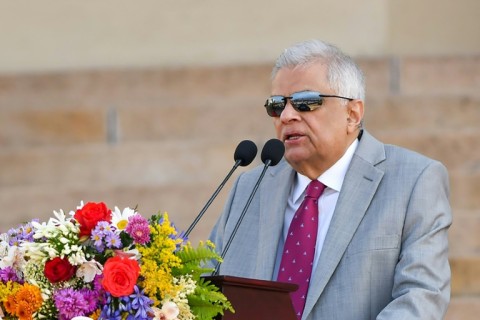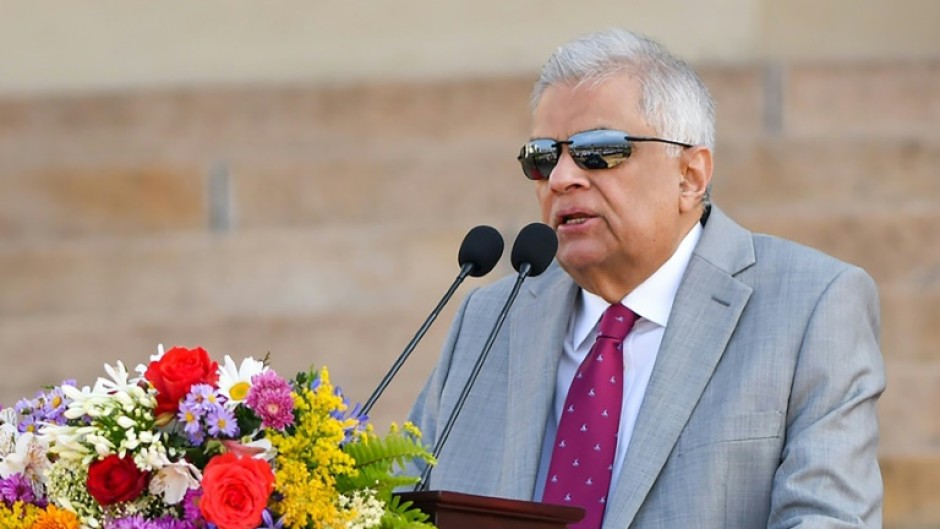
COLOMBO - Sri Lanka's president said that China had agreed to restructure its loans to the bankrupt island nation, clearing the final obstacle to a long-awaited International Monetary Fund bailout.
An unprecedented economic crisis has seen Sri Lanka's 22 million people suffer acute food, fuel and medicine shortages, along with extended blackouts and runaway inflation.
President Ranil Wickremesinghe's government has been working to repair Sri Lanka's ruined finances and secure the sorely needed IMF rescue package.
But it was held up by debt negotiations with China, its largest bilateral creditor.
Wickremesinghe told parliament Beijing had now agreed to a restructure and that he expected the first tranche from the Washington-based lender's promised $2.9 billion in funds to be released within the month.
"We have done our part, I hope the IMF will do theirs," he said in a special address to lawmakers.
Wickremesinghe said the state-owned Exim Bank of China had sent a letter to the IMF on Monday night signalling its willingness to go ahead with a restructure.
There was no immediate confirmation of the announcement from the bank or the IMF.
Sri Lanka defaulted on its $46-billion foreign debt last April.
Just over $14-billion of that is bilateral debt owed to foreign governments, of which China holds 52 percent.
Wickremesinghe's government entered into a staff-level agreement with the IMF for a $2.9-billion rescue package in September, but its release was held up pending "financial assurances" from creditors.
Japan and India, its other biggest creditors, along with a host of others known as the "Paris Club" creditor nations, had given assurances earlier this year, leaving only China to give its assent.
Financial analyst Murtaza Jafferjee, the head of the Colombo-based Advocata Institute think tank, told AFP "a significant shift in China's earlier position" would have been necessary for the bailout to proceed.
Beijing had earlier proposed a debt moratorium for up to two years instead of taking a haircut on its loans, an offer considered insufficient to meet the IMF's requirements.
"It is up to the IMF board to decide if the Exim Bank letter provides sufficient financial assurances they expect from all creditors," Jafferjee told AFP.

